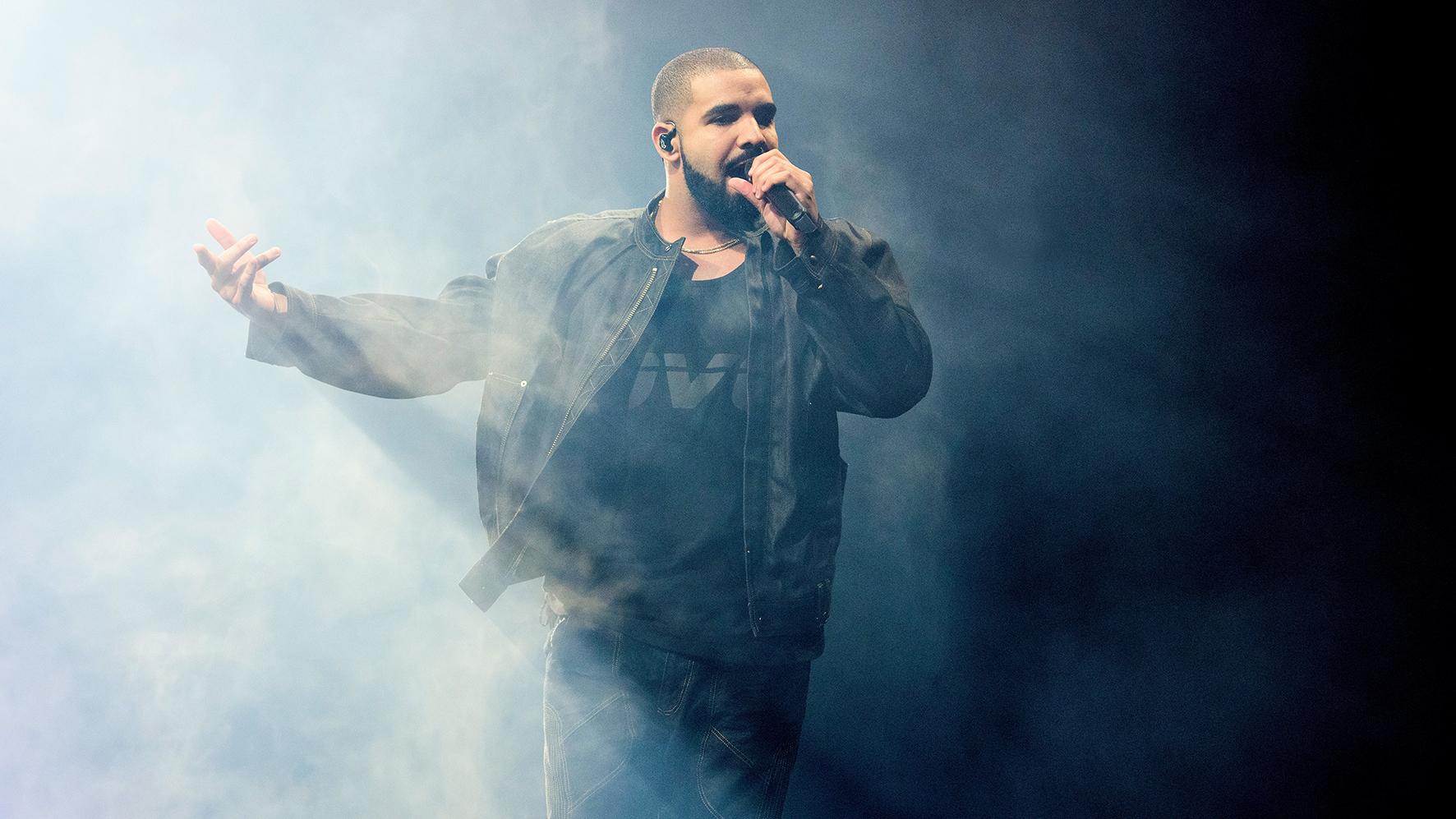
If you've taken even a brief glimpse at our news coverage over the past few months, you're likely to have spotted an emerging trend: fans using AI to transform their own vocals, or those of an existing artist, into vocals that sound like famous names such as Drake, The Weeknd, and Oasis' Liam Gallagher.
It's a fascinating development, and one that has seismic implications for the music industry. Though only a few notable examples have caught the public’s attention thus far, thousands of fans have already used AI to reimagine popular songs with new voices.
Ever wanted to hear AI Paul McCartney sing Billy Joel’s Piano Man? How about AI Kanye West and AI Rihanna taking on Eminem and Dido’s Stan? Fancy hearing AI Michael Jackson covering Rick Astley, or AI Kurt Cobain doing Blur? Now you can.
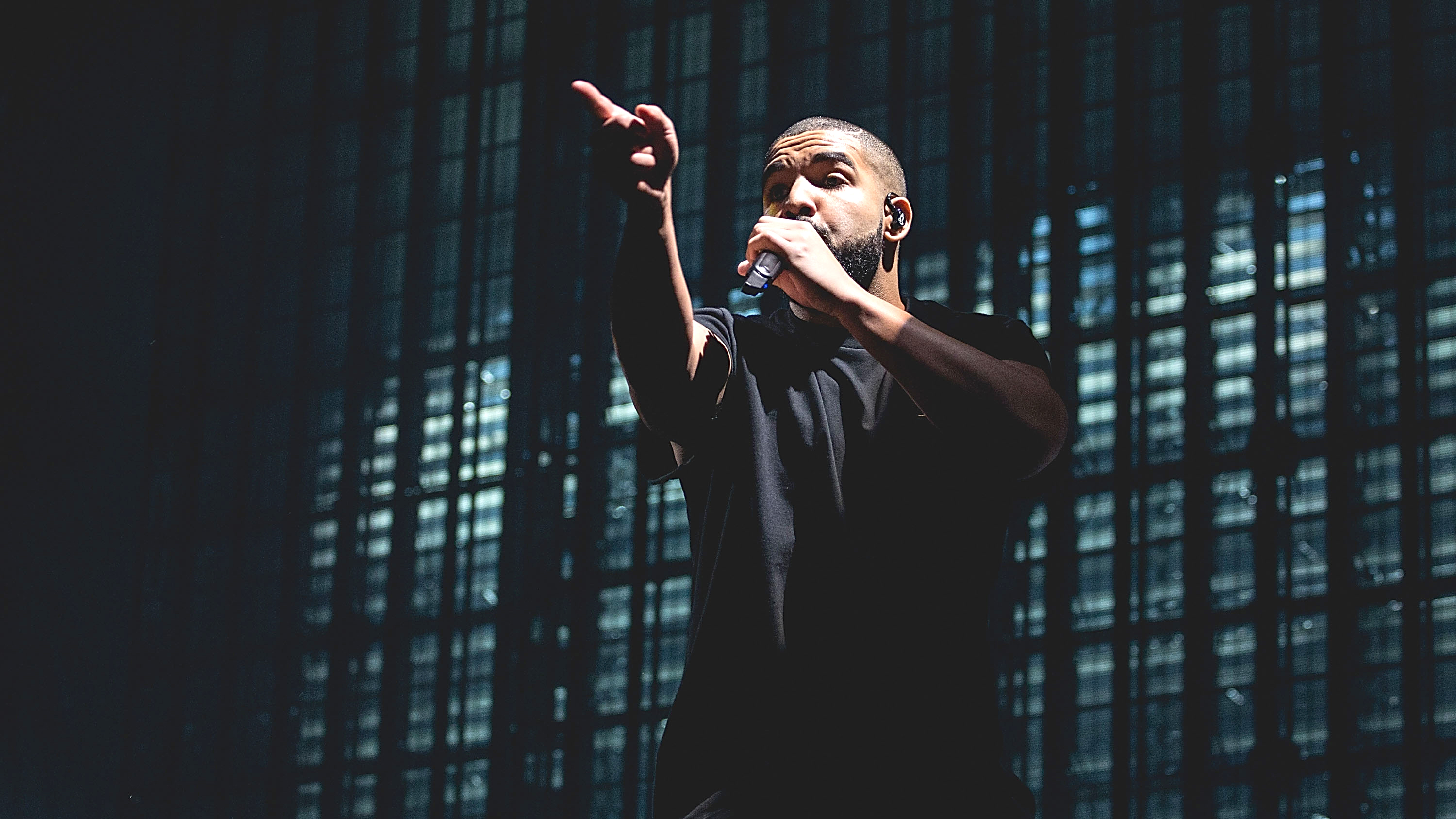
So how does it work? The majority of people creating these covers are using pieces of open-source software called So-VITS-SVC or RVC to process vocals. These are AI-powered deep learning models that can be trained by using audio files of any vocal timbre to convert vocal recordings into the singing voice they've been trained on. By ripping the vocal stems from an artist’s recordings and using these to train the models users can teach the software how to process any vocal recording to sound like the artist in question.
There are a number of ways to access these models. The software can be downloaded and run locally, but that process is a little more convoluted than just installing a regular application. If you’d like to run RVC on your computer and learn to train models and process vocals yourself, YouTuber p3tro has made a great tutorial for that.
Alternatively, there are a number of paid-for services that offer a more streamlined way to accomplish the same results. Let's run through six of the best websites you can use to create AI vocals.
Before you process a vocal, you’ll need to make sure that you have a clean a capella vocal recording. This can be achieved through the use of many paid-for tools that lift vocals from full mixes (a process called stem separation) but there are free options available, too, like VocalRemover and Gaudio Studio. Check out our guide to the best stem separation tools to find out more.
1. Kits.ai
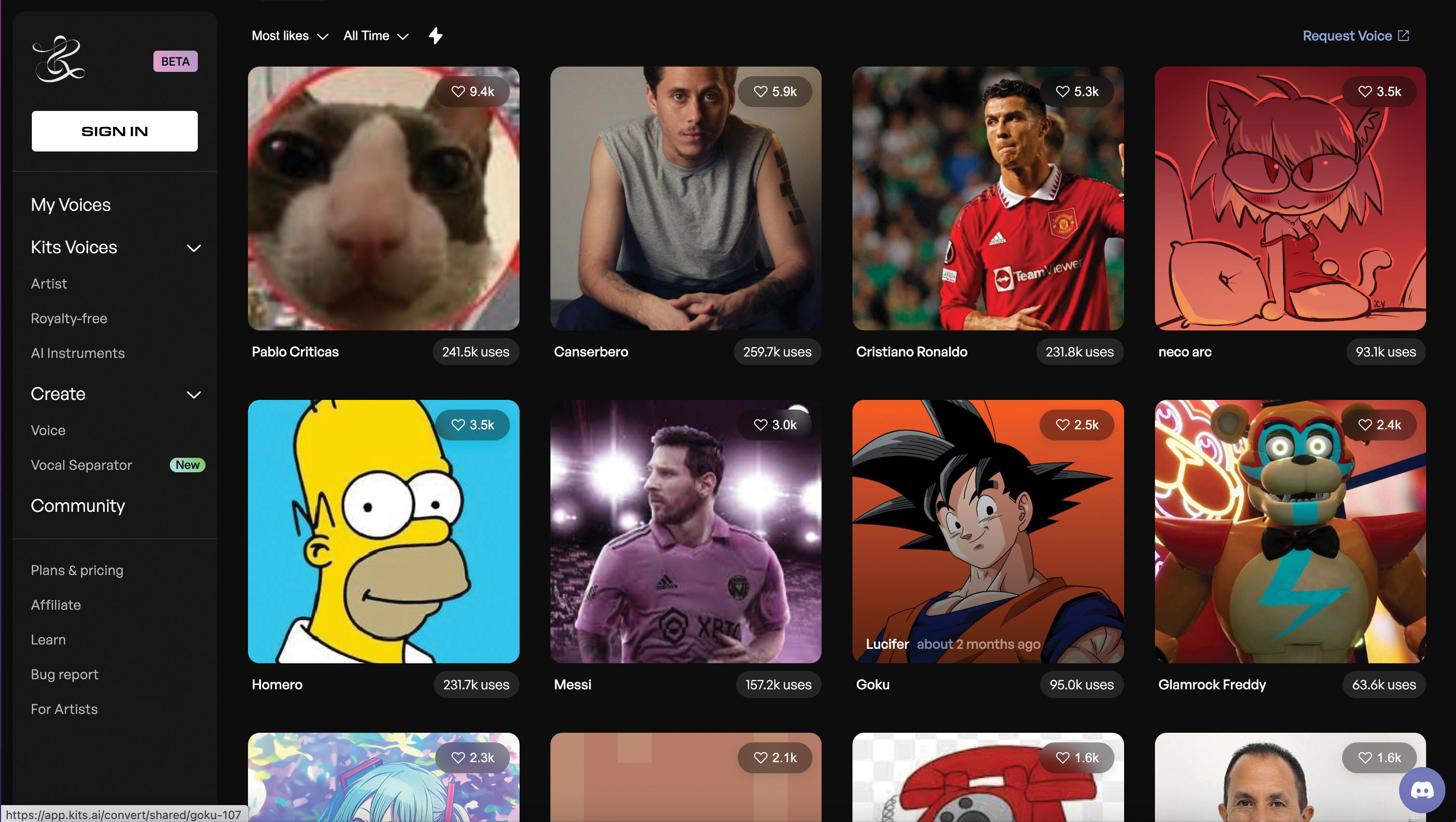
Kits AI work with a ‘partner artist community’, so if you use one of these AI Artist Voices, you can use any results for personal use, but must run them past the original artist if you want to release it commercially. Then you work with the artist on a royalty split. Seems fair. There’s only a dozen artists signed up so far, but also plenty of royalty free models to use and even AI instruments to model.
2. Musicfy
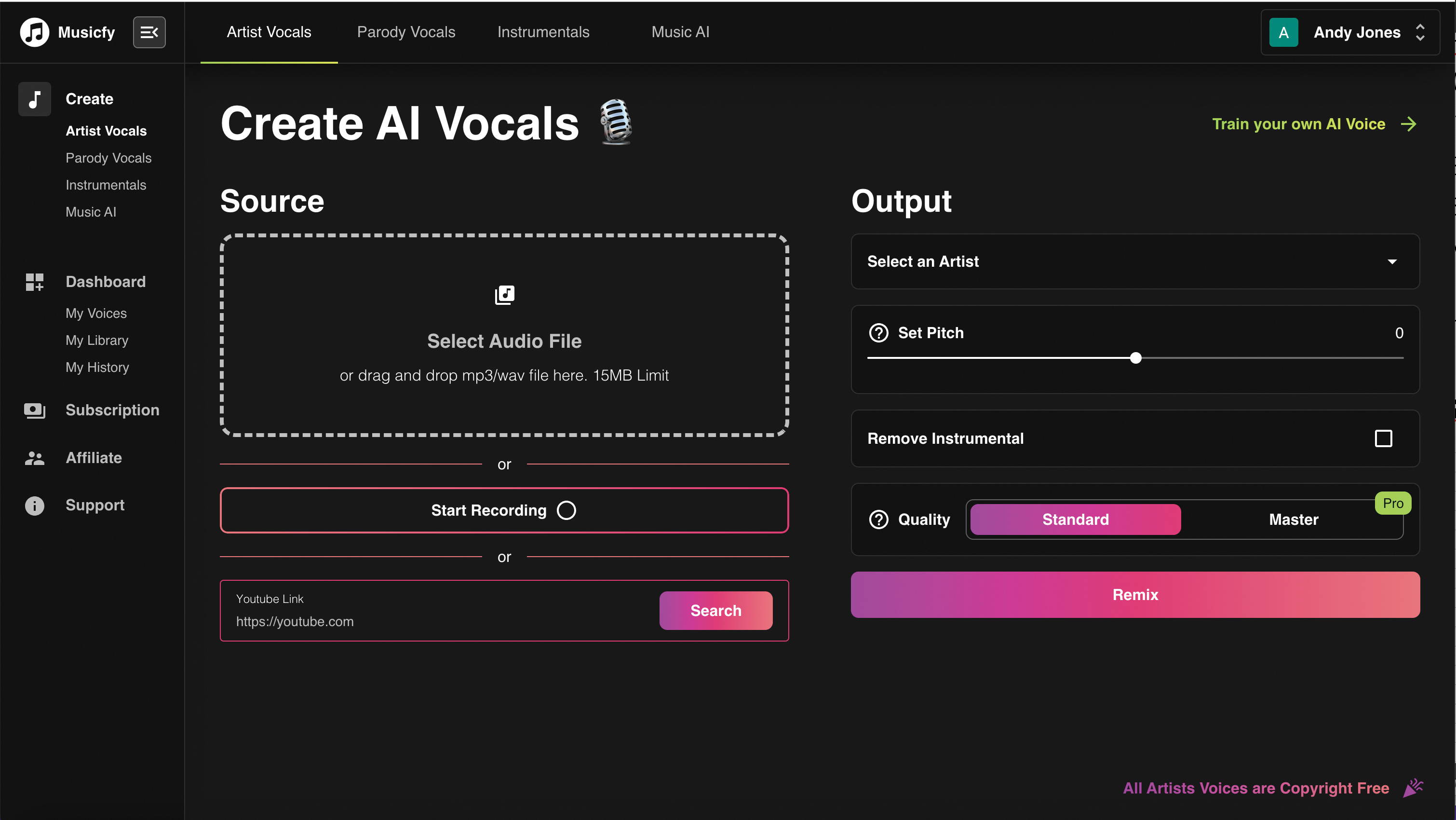
Another expensive site, but you can use it to clone your own voice, use parody models – we have Donald Trump singing – or choose from artist models (which don’t seem as famous as on some sites). Musicfy admits that its service raises ethical concerns when using famous voices but states: “You can freely use AI voice cloning, but it’s important to exercise responsibility”.
3. Voicify
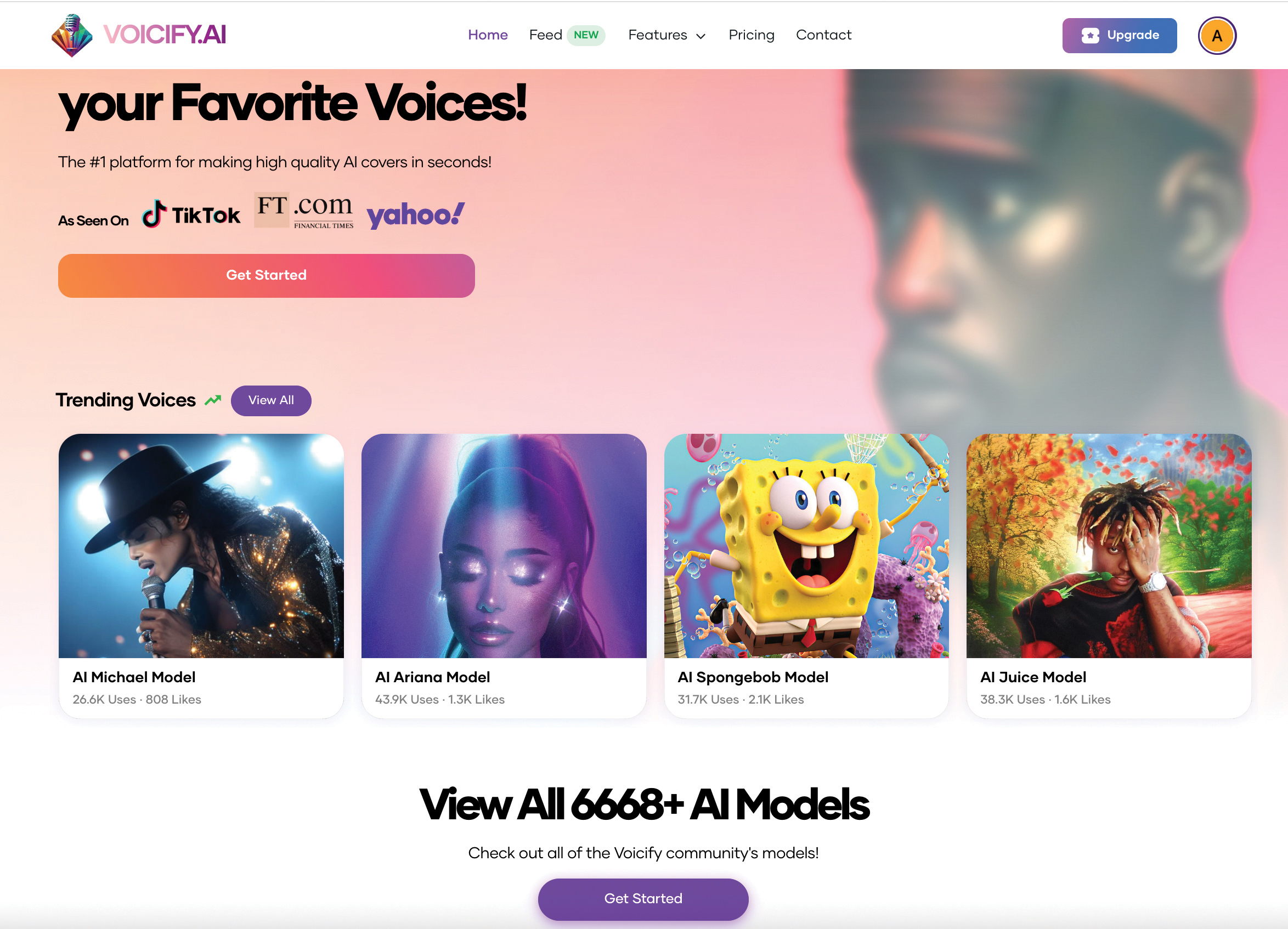
One of the most fully featured, but also most expensive, AI vocal sites. Voicify offers voice training, text to speech, models of famous names, both as famous singers and novelty, fun characters, and a good community feel. The top fee is huge compared to some, so only select it if you’re in need of lots of voices and have particularly deep pockets…
4. Singify
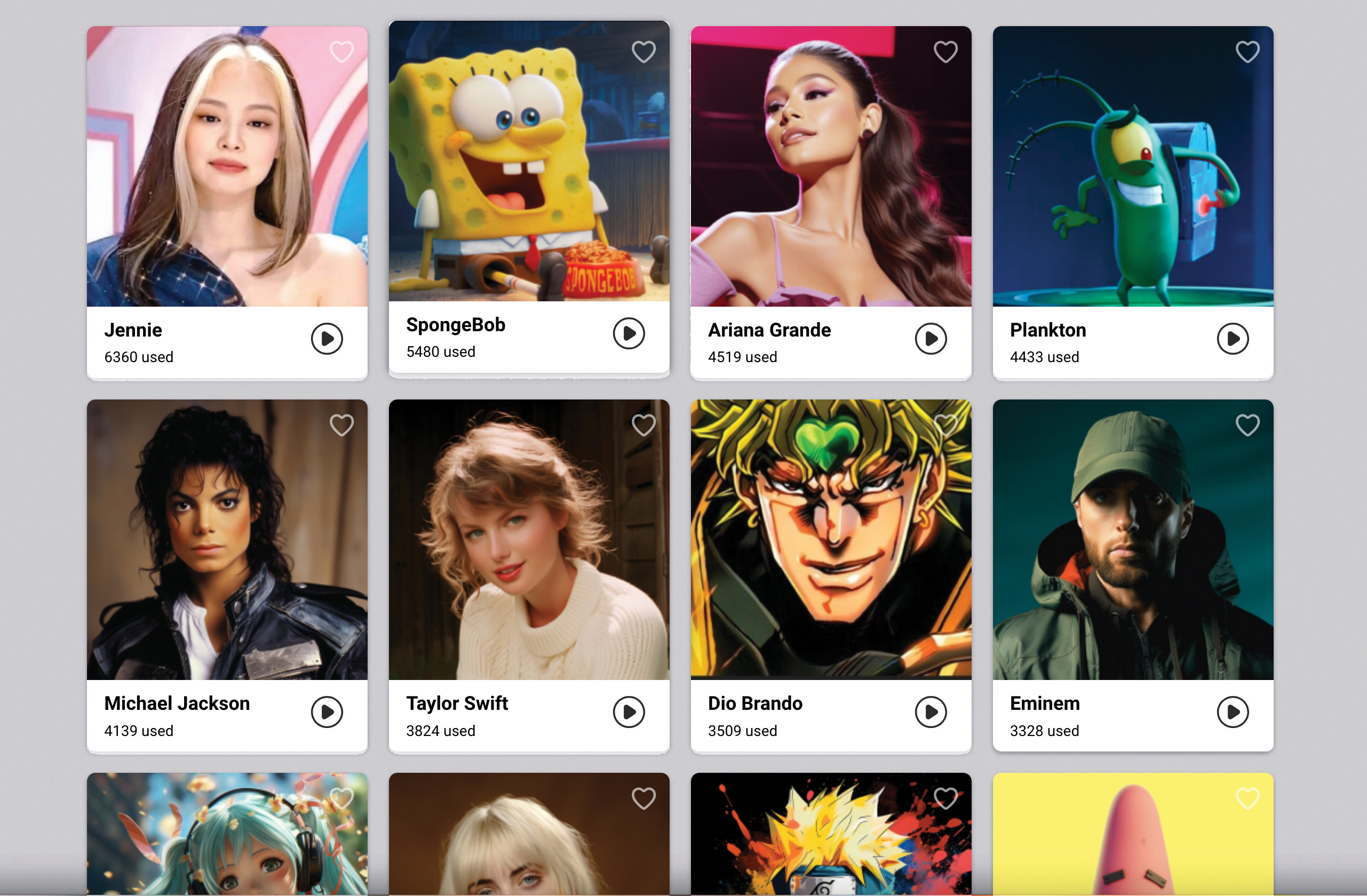
Singify seems to be quite a new site but is free to use (so far) and does have some famous singer AIs, including a very young looking Taylor Swift and Ariana Grande. We tried the Swift model and got fairly good results which are free to download so this could be a good site to start on if you want to experiment with vocal AI.
5. Revocalize
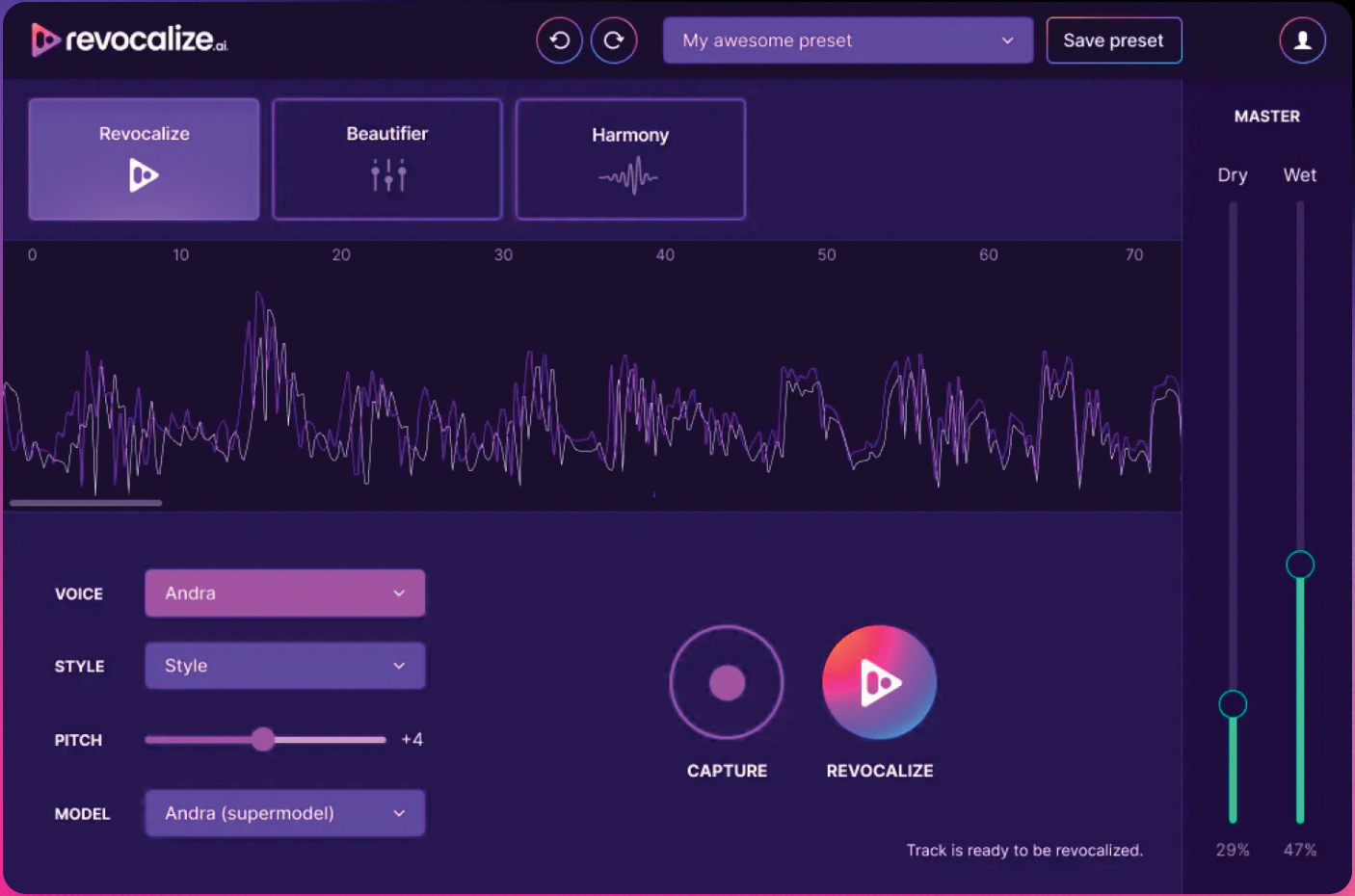
Revocalize is a little different to most of the other sites here in that it is less about modelling famous voices (there are only four models to choose from), and more about creating new models. You can even download a free VST plugin to do the conversions for you. It’s obviously early days on the website with some features not working and prices still to be ironed out, but the recent AI mastering addition looks great. One to watch.
6. Lalals
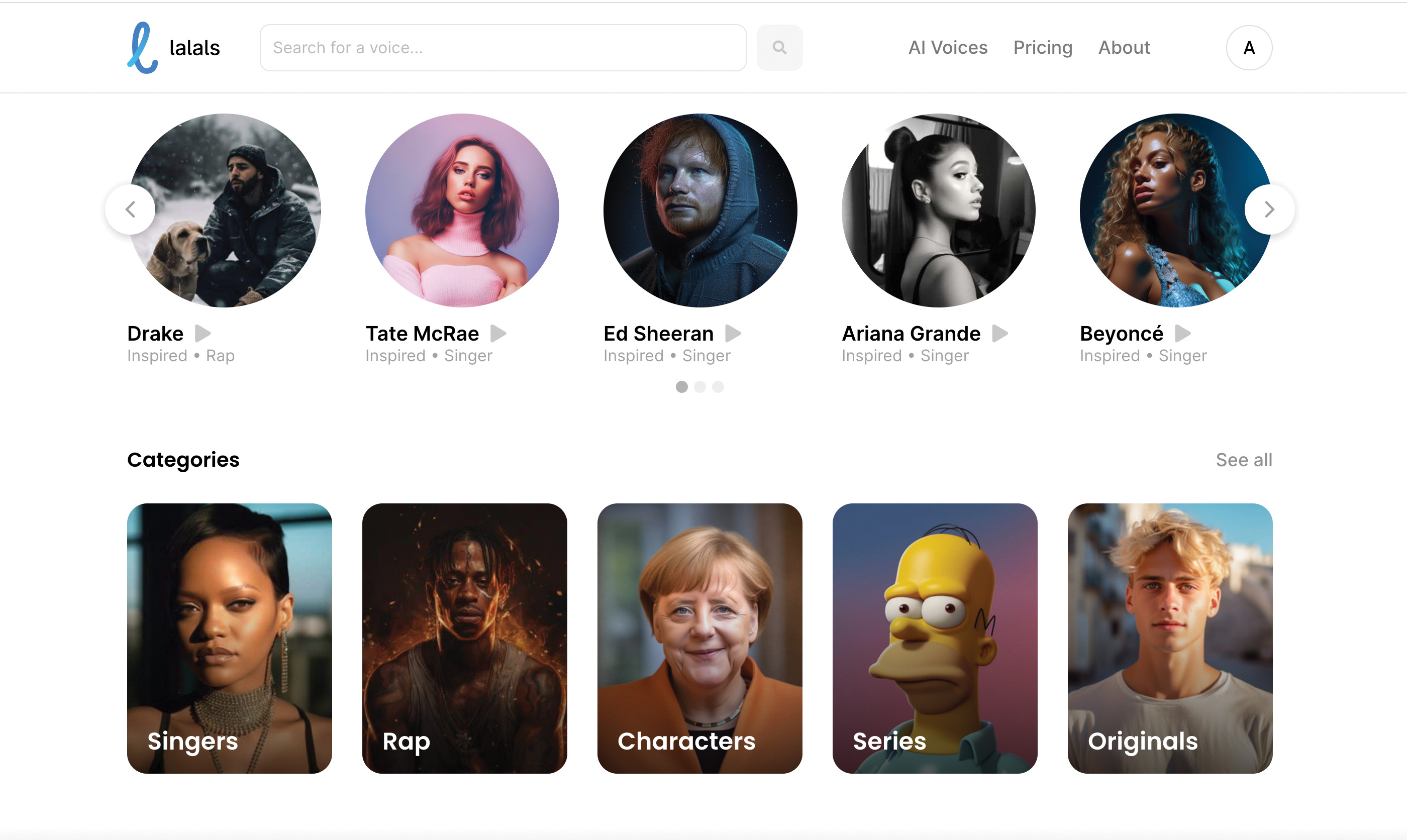
This is the best choice if you want famous voices, although there’s no mention of any credits to them for the use. It’s all about these conversions and while you will have to be careful getting the right source material, the models are among the best.
Before we conclude, it’s our duty to remind you that the legal status of AI covers is murky at best. Though the legal boundaries of this kind of AI-powered vocal imitation haven’t yet been ironed out, we recommend erring on the side of caution here.
While we maintain that it’s emphatically not a good idea to attempt to monetize any AI-generated music that imitates the voice of an existing artist - by uploading them to Spotify or YouTube, for example - we see no harm in playing around with this technology at home for your own amusement.







